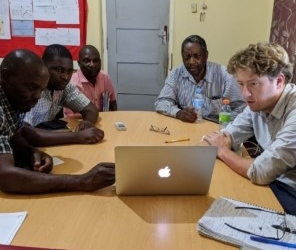Results-based financing in education
16 March 2022
A Mokoro and Foresight Development Associates team have completed a comprehensive assessment of results based financing (RBF) approaches to education programming in Nepal, Mozambique and Tanzania. The work was conducted in partnership with the University of East Anglia. The studies contribute to the global evidence base on RBF and provide lessons on RBF use in the education sector and recommendations for strengthening the link between results and funding.
The assessments looked at the use of RBF particularly by development partners to support government, and there has been an increasing trend in this modality in recent years across the world. This aimed to analyse the degree to which RBF contributed to achieve sector objectives and, ultimately, outcomes for students. The evaluation in Tanzania looked at an established RBF programme called Big Results Now / the Education Program for Results, ongoing since 2013 – with funding from the UK, Sweden, and the International Development Association (IDA). In Mozambique the focus was on the World Bank (2014-2018) Mozambique Public Financial Management for Results Program, as well as use of RBF by the Global Partnership for Education (GPE) and Germany (KfW). In Nepal the focus was on the School Sector Development Plan (SSDP), 2016-2021, with multiple donors involved including the World Bank, Asian Development Bank, GPE and USAID. In each case a wide set of output, process and outcome targets were included and closely analysed.
The research integrated qualitative and quantitative methodologies, with extensive document review, interviews, and regression analysis of a subset of results. The final outputs of the research form three country reports and a final Synthesis report. The Synthesis aimed to bring together insights from across the three countries, and provides a range of lessons and recommendations for the use of RBF in education as well as globally in other sectors. The reports have been well-received by senior stakeholders at the World Bank and provide a very important evidence base for practitioners in the field and development partners choosing to use RBF approaches, seeking to incentivise improved results or improve education systems more broadly. The two-year study culminated in a well-attended launch event “What types of results are worth buying?” hosted on December 16, 2021, by the World Bank.
The final synthesis report is now available on the Mokoro website.



